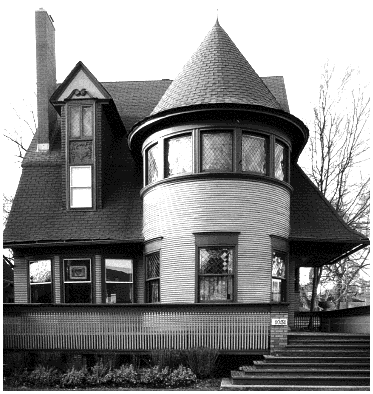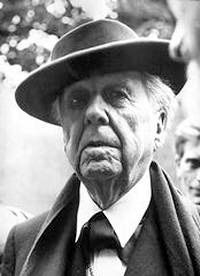A Year with Frank Lloyd Wright
Priscilla J Henken
Sarah A. Leavitt, Editor
(W. W. Norton)

It was a thrill for both of them. David Henken was an architectural student with a powerful admiration for the work (and the principles) of the master. Priscilla was a college graduate with a love of books, music and art. She had worked as a public school teacher.
The two of them embarked on their new adventure, leaving New York City in the fall of that year. Were they in for some surprises. We readers get quite a few, too. For Wright was a charmer and a genius but a bit of a scoundrel. His management of money was always dicey, almost as bad as his management of people.
Shortly after their arrival, Wright pressed David for a 'loan' to pay off one of his many debts. And after some time with Priscilla and this journal, we come to suspect that FLW would have taken in all the drunks of the Bowery as long as they could come up with the subscription price. Priscilla went from being a fairly successful New York school teacher to being the primary scullery maid in the kitchen at Taliesin. All for her admission price of $1,000.
David? Since he had had experience as a licensed electrician, his major work there was not, as he had hoped, sitting side-by-side with FLW at the drawing table, drafting new homes and buildings of the Prairie School. Rather he spent most of his days in the closets and attics of the several buildings on this huge spread, all of which needed rewiring. He was also allowed a little time building rock walls and was allowed to scrub dishes alongside Priscilla ... but mostly he was off in some nook, trying to bring some sense to the wiring which had obviously been dashed off during construction.
There were a few other problems as well. Or better, let us say that there were problems here and there, common to all communes (and Taliesin was a commune). There was the usual factionalism, back-biting, and gossip, all playing up to the supposed leader. One also had to put up with the czarina, FLW's third wife, Olgivanna, She proves to be a real Lady Macbeth, is great at playing one apprentice off against another. She also seems to have a bit of a problem with those she considered "racially inferior."
Priscilla is an angel, of course, but, then again, it's her journal. Once she learns that she is nothing but common drudge (cleaning, washing, cooking, weaving, weeding, canning), she bears up under it fairly well. A typical dressing-down by Olgivanna will berate her for her evening's menu, then go on to comment on her politics (and her mind set on, say, the question of a Jewish state):
- There you go again like all Jews, only intellectualizing. You have no creative urge and no initiative. Your only initiative takes the bad form of aggressiveness. I told a Jewish friend of mine that the only reason she's creative is that she's in part gentile.
 This is but one of dozens of lectures that La Dame delivers to Priscilla. And instead of doing what you and I would have done --- tell the old witch to stuff it --- Priscilla stays on at Taliesin with faithful David, who deals with these insults by heading over to the far end of Taliesin to do some more wiring.
This is but one of dozens of lectures that La Dame delivers to Priscilla. And instead of doing what you and I would have done --- tell the old witch to stuff it --- Priscilla stays on at Taliesin with faithful David, who deals with these insults by heading over to the far end of Taliesin to do some more wiring.
Many of these entries tell of the meals that Priscilla prepares during her time as chef. This for 1 February lunch: "chicken à la king with dry wine, biscuits, baked potatoes, kohlrabi, mustard pickles." January 11: "pork chops, potatoes on the half shell whipped with giblet gravy, creamed carrots au gratin, pickles." January 10: "Lunch for the Wrights had to be completely recooked and re-prepared because they decided to eat an hour and a half later. Fortunately, it was a vegetable platter: baked potatoes, stewed tomatoes, fresh peas & beans." All the vegetables were grown fresh at Taliesin and some of Priscilla's meals sound so good that if this were 1942 instead of 2013 I'd be calling her up, asking her over for supper (if she would bring the meat balls and giblet gravy.)
But socially, economically, psychologically, Taliesin is a mess. Priscilla finally labels it "a great fraud." Near the end of the journal, she writes,
- It's impossible for Mr. W to teach architecture because he can't --- it's just another accident of birth. They take the boys' money, & use them for jobs for which other architects would pay them handsomely, or use them for menial jobs, so he & his family can live in baronial style.
The tension here is wondering when Priscilla and David will finally get the hell out, but ...
... but there are compensations. The Wisconsin land is gorgeous --- at least when winter is over. The evenings can be a gas, when they dress up for Halloween, or their musicales, she on recorder playing Glück, Händel, Bach, Sammartini, Rameau, Dvorak, Haydn. There is a swimming hole, and during the late spring days, she and her friends can strip down and lie in the sun, run naked on the nearby island.
And Wright himself. When he isn't avoiding his creditors or hiding out when La Czarina is berating the workers, he can be charming and funny, even, at times, mocking himself. "A Californian wanted to give an exhibit in architecture and asked FL if he minded being in the center of the exhibit, with Richard Neutra on one side and Rudolf Schindler on the other.
- Hell, why not? Wasn't Christ hanged between two thieves?
And there are his genuine artistic insights: "Noted the horizontal terraces along steep hills --- the cow paths which they make so they can graze, never walking straight up or down. FLW once said that a city's streets are always laid out along the cowpaths because they know the secret of contour walking."
 If someone wants to learn about the Real Wright, I suggest they'd be better off reading Taliesin Diary rather than his ponderous five-volume autobiography. A review of the latter appeared in a 1943 issue of the New Yorker and in it Clifton Fadiman wrote, "There is not the slightest doubt that his ego and eccentricities are part of what makes him a profound artist in wood and stone and concrete."
If someone wants to learn about the Real Wright, I suggest they'd be better off reading Taliesin Diary rather than his ponderous five-volume autobiography. A review of the latter appeared in a 1943 issue of the New Yorker and in it Clifton Fadiman wrote, "There is not the slightest doubt that his ego and eccentricities are part of what makes him a profound artist in wood and stone and concrete."
- His office buildings and his houses, and the liberating vision of which they are the product, will stand when his crotchets have long been forgotten.
(This was written long before the Guggenheim, his ghastly bomb bunker, was plopped down on 5th Avenue in New York City; it certainly reveals no "liberating vision.")
There was something about him, whatever it was, that made people forgive his "crotchets." I see him now, with his cape and pork-pie hat, going down the flowery cow-paths at Taliesin, expounding --- at tea, or at supper --- on some arcane subject. And the visitors and associates and fellows are all infected with a (sometimes grudging) love for him.
After David and Priscilla depart --- he slowly, she abruptly (so quickly that the diary does not even show what caused the break) --- they remain friends with Wright, David working on projects with him, in regular communication; Priscilla never apparently bitter at the not-so-well-hidden anti-semitism displayed by Madame O.
During all this, we get to be very fond of Priscilla. She is a good soldier, and a quick study. She is enormously well-read, and even though she never thought of herself as a cook, eventually prepared meals for an army (with three special meals daily for the Wrights). All this time she is plowing through a book every day or so: D. H. Lawrence, James Thurber, Carson McCullers, A. J. Cronin, Ilka Chase, Ignacio Silone, Constance Roarke, Thomas Mann, Thomas Hardy, Pushkin, and, even, gasp, Sophocles. (She also reports that "Victorian novels of frustrated love almost always give me a headache.")
After all is said and done, being at Taliesin was something to write home about, even if it was a minuscule aside that foot-noted the genius he was (and certainly thought he was):
- A dispute at tea yielded the following superstitions about what the bob-white's call is: Mrs. Wr. --- "bob-white;" Sister Matinel --- "more wet" --- a warning of rain; Iovanna [Wright's daughter] --- "But Daddy says it calls 'Frank Wright.'"